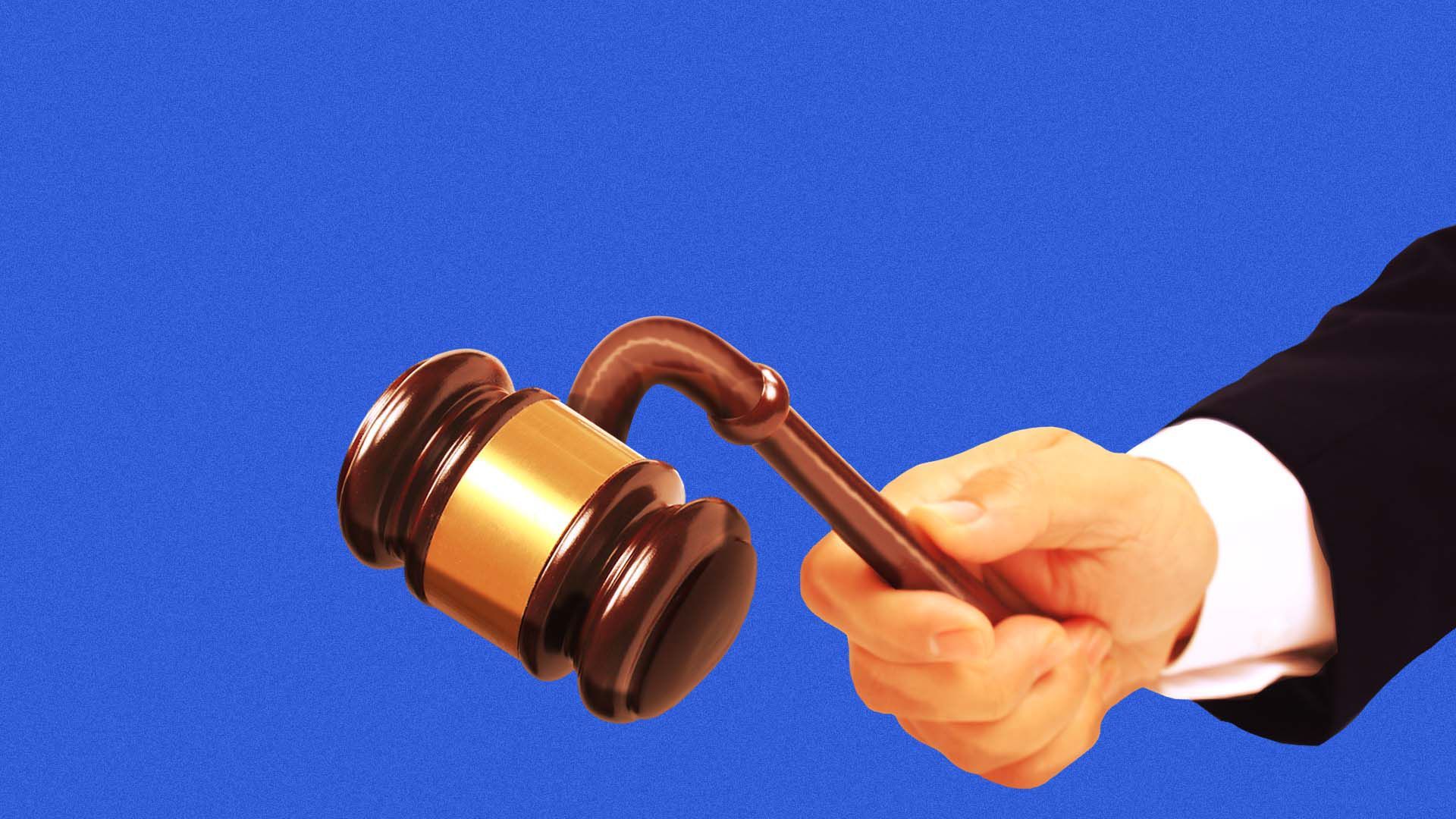Trade commission's tech cases: Hits and misfires
Add Axios as your preferred source to
see more of our stories on Google.

Illustration: Sarah Grillo/Axios
With the Federal Trade Commission expected to unveil long-awaited antitrust action against Facebook in the near future, the agency's mixed record on regulating tech has experts viewing the case as a "put up or shut up" moment.
The big picture: Most of the tech cases the FTC has tackled involve consumer protection rather than restraining monopolistic behavior. Past antitrust investigations of tech mergers or companies, like a review of Google that ended in 2013, led critics to paint the FTC as toothless.
Here's a look backwards in time at the agency's hits and misses in tech.
2019 —YouTube's $170 million settlement: YouTube agreed to pay a fine in 2019 and make other changes to how it handles kids' videos to settle allegations it violated children's online privacy laws.
- "The FTC brought a pretty aggressive case, and I think the solution was more aggressive than the legal claims,"said Neil Chilson, senior research fellow for Tech and Innovation at Stand Together and a former FTC adviser. "That has a big impact on how YouTube operates."
2019 — Facebook's $5 billion privacy settlement: The fine for violations of user privacy, including the Cambridge Analytica scandal, set a record. But critics viewed it as ineffectual, given how rich Facebook is.
- Former FTC Commissioner William Kovacic noted the 2019 case arose out of problems with a previous FTC move — a 2012 privacy settlement with the company that was meant to be a template for the whole sector.
- "I think the design and implementation of it certainly proved to be flawed," said Kovacic, now a professor with George Washington University Law School. "If you’re doing your job well, you learn from that and don’t make the same mistakes again."
2017 — Amazon acquires Whole Foods: The FTC investigated Amazon's acquisition of the natural-foods giant but took no action.
- That "entrenched Amazon’s power as an online retailer in a number of ways," said Stacy Mitchell, co-director of the Institute for Local Self-Reliance, including giving it "a new cache of data on how a particularly lucrative demographic behaves in an offline shopping environment."
2017 — Qualcomm monopolization lawsuit: In the last days of the Obama administration, the FTC sued Qualcomm for allegedly using anticompetitive tactics to maintain a monopoly. The agency won the trial but lost the case on appeal this year.
- "This was an ambitious, risky case where the FTC is seeking to, in a sense, push the boundaries of doctrine outward a bit in a very dynamic, complex technology market," Kovacic said.
2014 — In-app purchases: The FTC lodged complaints against Apple, Google and Amazon in 2014 (eventually settling them all) alleging the companies unfairly billed consumers for in-app charges incurred by children without their parents' consent.
- In separate cases the companies agreed to refund roughly $121.5 million to consumers.
- "Those cases really emphasized that very small harms to a large number of consumers can be a big problem for companies," Chilson said. "In many cases, people were losing like 99 cents. Not a ton of money, but in aggregate it was a big problem. It changed the functionality of the app stores."
2012-2014 — Facebook's acquisitions: The FTC signed off on Facebook's 2014 acquisition of WhatsApp and its 2012 purchase of Instagram. Those two mergers shaped today's company — and are reportedly at the center of the FTC's current investigation into whether the social media company squelched competition by buying up rivals.
- "The FTC is responsible for the dumpster fire that is the modern internet," said Matt Stoller, director of research at the American Economic Liberties Project. "What happened from 2004 onward is there was a big merger wave in the online advertising and publishing space. There was a really big roll up, and the FTC and DOJ didn’t block a single merger."
- But Chilson argued the FTC has prioritized antitrust action in sectors where the harm to consumers was more apparent, such as in hospital mergers. "You don't just bring cases to bring cases, you bring cases to make consumers better off," he said.
2013 —The Google search investigation: The FTC investigated whether Google used its power in the search market to squelch rivals and won commitments by the search giant to change some behavior — something Kovacic argued should've been in a court order.
- "After heralding the possibility of a big case, the FTC produces promises in a letter that are not enforceable," Kovacic said.
- Yes, but: A former FTC official said the commission didn't have the votes to do more. "Google was doing some things that were unscrupulous, like scraping other people’s reviews. We put a stop to it, but you have to have three votes if you want to go further," the official said.
2007 — Google's DoubleClick acquisition: The FTC also allowed Google's 2007 acquisition of DoubleClick, which cemented the company's place at the center of the targeted-advertising business.
- Kovacic, who was on the commission at the time, said if he knew in 2007 what he knows now, he would have supported commission action against the deal.
Between the lines: The FTC's Google search episode may be the one most in the commissioners' front of mind as they prepare for a Facebook case.
- "My intuition is, the FTC does not want to go to another press conference and announce, 'Never mind'," Kovacic said.
- "To walk away from bringing a case against Facebook after all of the talk around it would be a shattering institutional failure," he added.
